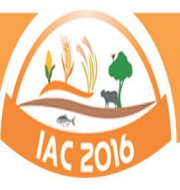PM Narendra Modi inaugurates first International Agro-biodiversity Congress
Prime Minister Narendra Modi inaugurated the first International Agro-biodiversity Congress in New Delhi.
The 4-day Congress (from November 6 to 9, 2016) will be attended by 900 delegates from 60 countries to discuss conservation of genetic resources.
What is Agrobiodiversity?
- Agrobiodiversity is defined as the variety and variability of plant, animals and micro-organism that are used directly or indirectly for food and agriculture. It includes all species that are closely inter-woven in an agricultural ecosystem.
- India is one of the most diverse countries in the world possessing unique crop and animal diversity. It covers only 2.4% of the world’s land area and yet it harbours 7-8% of all recorded species, including over 45,000 species of plants and 91,000 species of animals.
Key Facts
- The conference has been organised by the Indian Society of Plant Genetic Resources and Biodiversity International, a CGIAR Research Centre headquartered in Rome, Italy.
- It will address the threats imposed by climate change and ways to achieve sustainable agriculture production. It may adopt ‘Delhi Declaration on Agrobiodiversity management and use’.
- It will lead to discussion and knowledge sharing on issues for efficient management of gene banks, crop diversification, science-led innovations in genetic resources, issues relating to quarantine, intellectual property rights and biosafety and biosecurity.
- It will also prepare a road map to enhance food, nutrition and health security by optimal utilisation of agrobiodiversity while protecting agro-ecosystems.
- It also seeks to develop a network of partnerships to strengthen biodiversity management system at national, regional and global levels.
Month: Current Affairs - November, 2016


